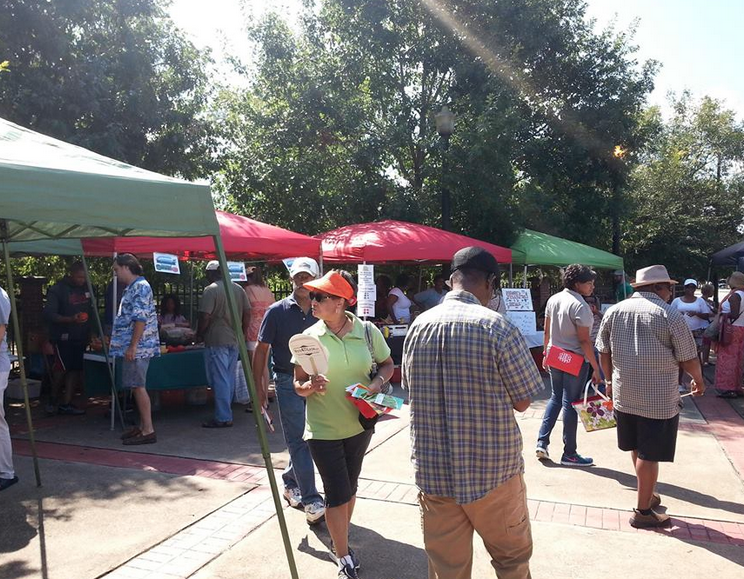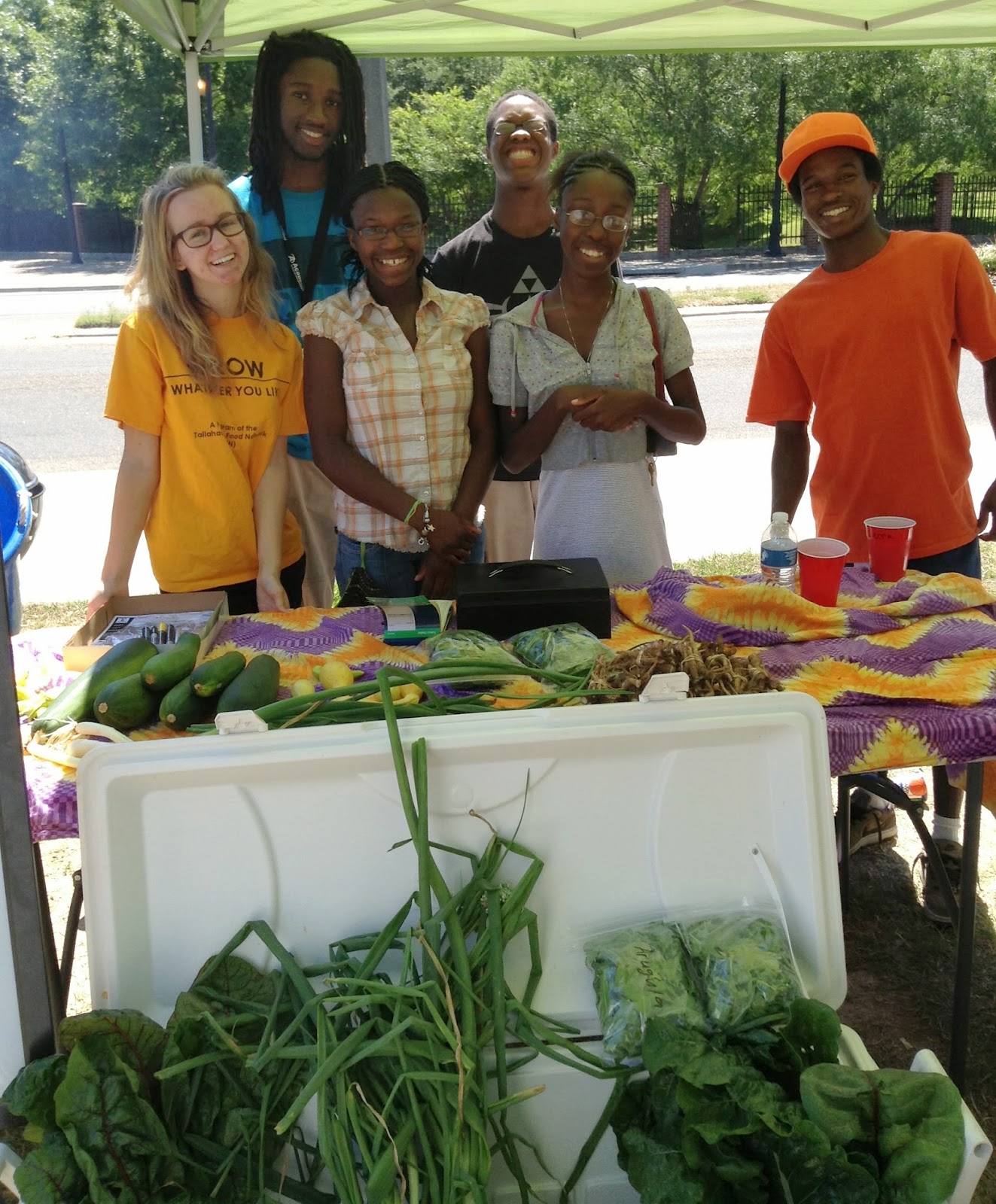What does Apple, Inc, the multinational corporation that designs, develops, and sells consumer electronics have in common with north Florida local food efforts like Red Hills Online Market, the Frenchtown Heritage Market, and iGrow Whatever You Like?
 |
| A line to enter at the Apple Store in Miami's Southbeach |
But why is Man in Overalls, a food garden entrepreneur and community food system developer interested in a tech store? Because Apple, Inc. and local food efforts are largely pursuing the same business model: direct marketing, also called "direct-to-consumer" sales.
Let's take a look:
 |
| Red Hills Online Market |
 |
| Frenchtown Heritage Market Summer 2014 |
Whatever it looks like, the direct-sales business model is rooted in the "logic of the dollar." Apple farmers, for instance, earn 5 to 10 cents for every $1 spent on apple sauce in spite of the fact that sauce is 95-99.9% apples. The rest of the earnings go to harvesters, trains and trucks, peeling and processing, food-science-additives like preservatives, cooking, packaging, marketing, and lots of middle men like your favorite grocery store chain. It's a similar story for all manner of agricultural products.
Thus, if farmers were able to sell their products directly to consumers either in their raw form (apples)-- or as the "value added" products (like apple sauce)-- they would "capture more of the dollar," and therefore economically survive and possibly thrive.
This is the same logic that Apple, Inc the multinational corporation is working off of. And if you look around, it is more and more the logic of the largest companies on earth. Think Google, Exxon, Walmart, and others.
Keep up the good food work,
Nathan, Man in Overalls

++++++++++++++++++++++++++++++++++++++++++
Update: December 10th, 2014
An hour after I published, Tony Murray sent me this short note: "FYI: Apple-- 54.4 B of corporate profits "parked" overseas....; how 'bout those non-American apples...."
Kudos to Tony for pointing out the difference between Apple, Inc and our local farm-to-table business models: namely where the money earned goes. In the case of Apple, Inc, the money we spend with them heads to Cupertino, CA and/or oversees into tax-sanctuaries. Apple, of course, has sizable expenses (R&D, manufacturing, materials, executives, marketing, etc), and they reinvest in the company to the benefit of shareholders-- a few who live in our area. It's safe to say, however, that very little local economic benefit is derived from Apple, Inc.
The vast majority of money spent with our local farmers, on the other hand, stays right here in our community. Orchard Pond, one local farm, estimates that 60% of their farm expenses are labor. That means jobs. Now think of seeds, starts, amendments, office supplies, accounting assistance, and all manner of other possible farm/business materials & services. Many (if not most of those) can also be acquired locally. When a business earns local dollars and re-spends them with other local individuals and businesses, we call this the local multiplier effect. Local, small-scale, naturally-grown agricultural production has one of the greatest local-multiplier effects of any business model out there.
Now consider that annually in Tallahassee's area, we spend $180 million on fruits and vegetables. What if 10%, what if 5% of that were produced locally? We'd be looking at a direct 300 ($30k/yearly) jobs. When the local-multiplier effect was taken into account, we'd easily be talking 500 jobs. Imagine what that would do for our community. For issues of hunger, for crime, for family stress, for local businesses, for property values.
